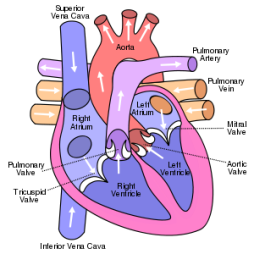A lot of family and friends have been asking me, "How do you feel?" That question is hard for me to answer,
but I have several statistics to share.
I have been out of the hospital for seven weeks.
My cyst is completely healed - that means that the open incision that was originally 4.5cm long by 2.4 cm deep has completely closed. The wound is left open, instead of sutured closed, to allow the area to drain and to prevent the cyst from reforming. See more information below.
A Pilonidal excision wound is also called a "Cavity Wound",
meaning that a large chunk of tissue has been removed, leaving a cavity.
Small cavity wounds can be closed with stitches, but larger cavities
are in much greater danger of infection and will likely be smoother and less prone to splitting if the cavity is allowed to fill in with new tissue.
An "open" healing happens by letting the wound "fill in" from the bottom.
The wound will fill itself in by building new tissue starting at the bottom of the wound. The most important part of open healing is to keep the sides of the wound from touching - if the sides touch, then they can form bridges and heal together, trapping drainage in the wound. Sterile gauze is used to fill the wound to absorb drainage and keep the wound walls separated.
I routinely measure my weight, temperature, blood pressure, and heart beat.
My four week averages are:
WEIGHT: 140 lbs
TEMPERATURE: 97.7 degrees
BLOOD PRESSURE: 103/69
HEART BEAT: 86 beats/min
WHAT IS YOUR WEIGHT?
Before being hospitalized, I weighed around 160lbs.
One week after returning home, I had lost 20lbs.
I blame it on hospital food and diuretics.
but I have several statistics to share.
I have been out of the hospital for seven weeks.
My cyst is completely healed - that means that the open incision that was originally 4.5cm long by 2.4 cm deep has completely closed. The wound is left open, instead of sutured closed, to allow the area to drain and to prevent the cyst from reforming. See more information below.
A Pilonidal excision wound is also called a "Cavity Wound",
meaning that a large chunk of tissue has been removed, leaving a cavity.
Small cavity wounds can be closed with stitches, but larger cavities
are in much greater danger of infection and will likely be smoother and less prone to splitting if the cavity is allowed to fill in with new tissue.
An "open" healing happens by letting the wound "fill in" from the bottom.
The wound will fill itself in by building new tissue starting at the bottom of the wound. The most important part of open healing is to keep the sides of the wound from touching - if the sides touch, then they can form bridges and heal together, trapping drainage in the wound. Sterile gauze is used to fill the wound to absorb drainage and keep the wound walls separated.
I routinely measure my weight, temperature, blood pressure, and heart beat.
My four week averages are:
WEIGHT: 140 lbs
TEMPERATURE: 97.7 degrees
BLOOD PRESSURE: 103/69
HEART BEAT: 86 beats/min
WHAT IS YOUR WEIGHT?
Before being hospitalized, I weighed around 160lbs.
One week after returning home, I had lost 20lbs.
I blame it on hospital food and diuretics.
Average Weight Chart - Women
| Age | lb |
| 20 | 130 |
| 30 | 140 |
| 40 | 148 |
| 50 | 152 |
| 60 | 155 |
| 70 | 147 |
My weight varies depending on the amount of sodium I ingest.
A build up of water in the body contributes to increased water levels
in the body causing the blood pressure (and thus strain on the heart) to increase.
WHAT IS YOUR TEMPERATURE?
Most people think of a "normal" body temperature as an oral temperature of 98.6F.
Your temperature may actually be 1°F or more above or below 98.6F.
Also, your normal body temperature changes by as much as 1°F (0.6°C) throughout the day, depending on how active you are and the time of day.
Body temperature is very sensitive to hormone levels and may be higher or lower when a woman is ovulating or having her menstrual period.
What can cause a fever?
- Infection. This is the most common cause of a fever. Infections may affect the whole body or a specific body part (localized infection).
- Some medicines, such as antibiotics, raise the body temperature directly; others interfere with the body's ability to readjust its temperature when other factors cause the temperature to rise.
- Severe trauma or injury, such as a heart attack, stroke, heat exhaustion, or burns.
- Medical conditions, such as arthritis, hyperthyroidism, and even some cancers.
WHAT IS YOUR BLOOD PRESSURE?

WHAT IS YOUR HEART BEAT?




The average adult heart beats about 60 to 80 times a minute at rest.
The resting heart rate usually rises with age, and it's generally lower in physically fit people. Resting heart rate is used to determine one's training target heart rate. Athletes sometimes measure their resting heart rate as one way to find out if they're over trained. The heart rate adapts to changes in the body's need for oxygen, such as during exercise or sleep.


.svg.png)

No comments:
Post a Comment